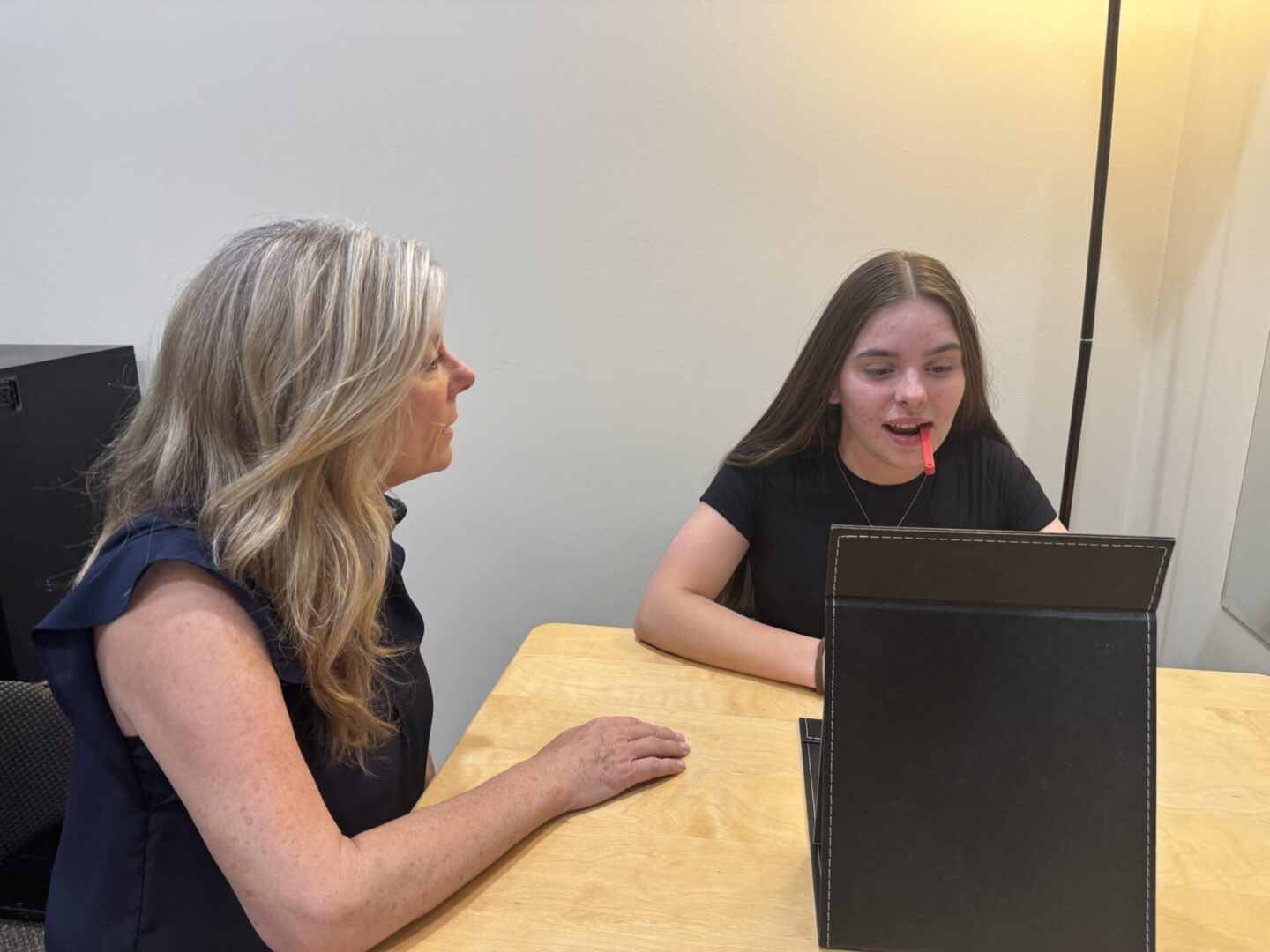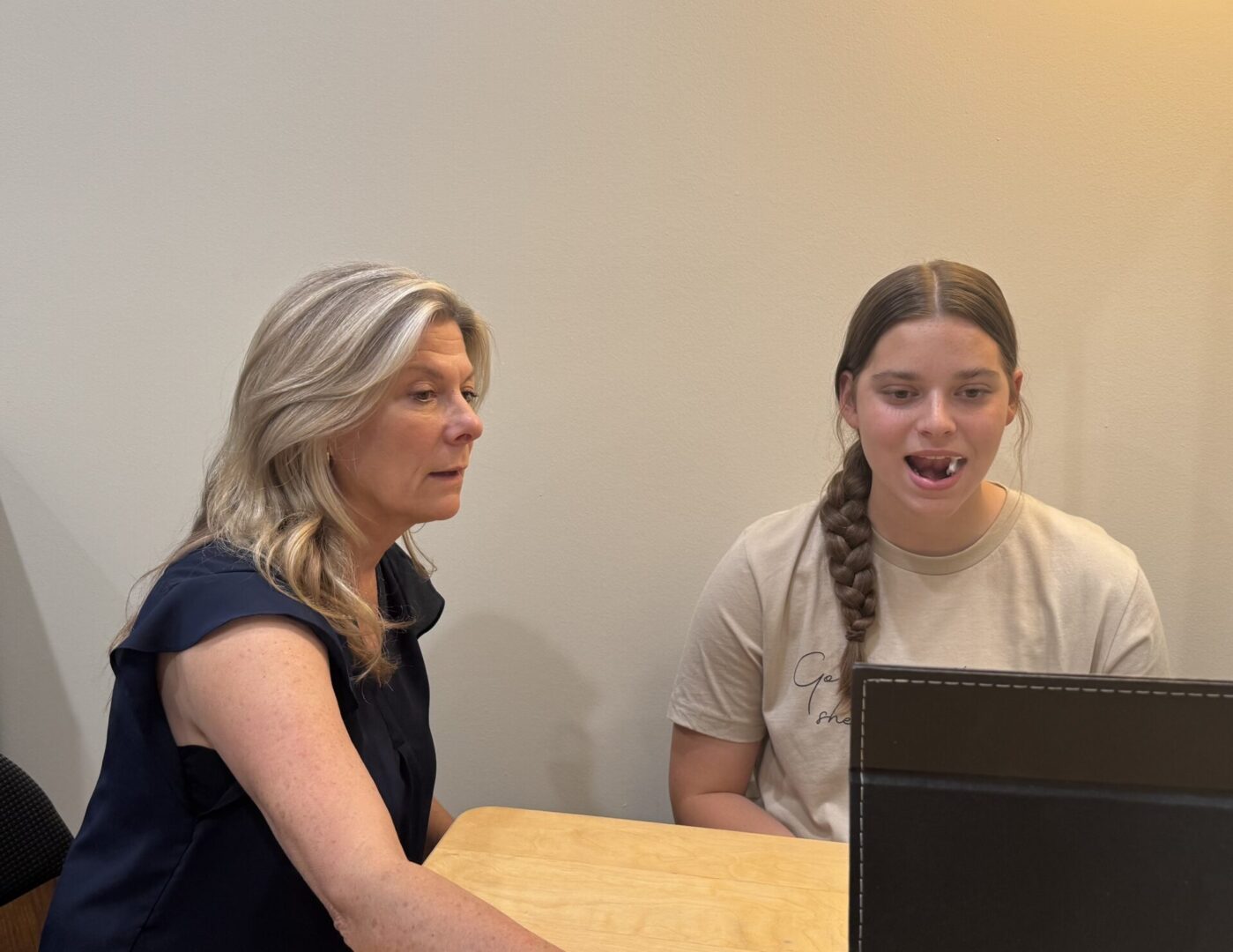Comprehensive MYOFUNCTIONAL AND SPEECH THERAPY SERVICES
Cave Creek Speech & Myo Therapy provides specialized services in Scottsdale and Phoenix, helping individuals with communication and myofunctional disorders. Our experienced therapists deliver personalized care tailored to each client’s unique needs.

Our Therapy Services
Orofacial Myofunctional Therapy
Orofacial Myofunctional Therapy (OMT) is a type of therapy that focuses on correcting improper patterns of muscle function in the face, mouth, and jaw. It involves exercises that target the muscles used for breathing, swallowing, chewing, and speaking. The goal is to improve muscle strength, coordination, and proper positioning to enhance oral health and function.
OMT is commonly used to treat conditions like:
- Tongue thrusting: When the tongue pushes forward against the teeth during swallowing or speaking.
- Mouth breathing: Chronic mouth breathing instead of nasal breathing, which can affect facial development and cause dental issues.
- Swallowing difficulties: Improper swallowing patterns, such as using the tongue incorrectly or pushing it against the teeth.
- Speech and feeding issues: Conditions like speech delays or difficulty eating and drinking.
Therapy typically involves a combination of exercises to retrain the muscles, improve posture, and promote the proper use of oral and facial muscles. OMT can be beneficial for both children and adults, helping with things like improving dental alignment, reducing orthodontic relapse, and supporting overall oral health.
Speech Sound therapy
Speech Sound Disorders (SSDs) refer to difficulties with the articulation or pronunciation of sounds, which can impact speech clarity. There are several types of speech sound disorders, and they can generally be classified into the following categories:
Articulation Disorders
This type of disorder involves difficulty producing specific speech sounds correctly. A person with an articulation disorder may substitute, omit, add, or distort sounds. For example, substituting "w" for "r" (saying "wabbit" instead of "rabbit") or omitting a sound like saying "ca" instead of "cat."
Phonological Disorders
Phonological disorders involve patterns of speech errors that affect the way sounds are organized and used in language. Instead of just mispronouncing individual sounds, the person might follow incorrect rules for sound patterns. For example, using "t" for "k" in words like "cat" (saying "tat"). Common patterns include: dropping the final sound of words (e.g., saying "ca" for "cat"); simplifying consonant clusters (e.g., saying "pane" for "plane"); producing sounds in the front of the mouth instead of the back (e.g., saying "tat" instead of "cat").
Motor Speech Disorders
These disorders involve difficulty with the physical production of speech sounds due to issues with the muscles used for speaking. Apraxia of Speech is a motor speech disorder where the brain struggles to plan and coordinate the muscle movements needed for speech. This can cause inconsistent errors, difficulty with articulation, and challenges in sequencing sounds.
Language Therapy
Language Disorders are conditions that affect an individual's ability to understand, produce, or process language. These disorders can affect various aspects of language, including vocabulary, sentence structure, grammar, and comprehension. Here are some common types of language disorders, along with examples:
Expressive Language Disorder encompasses difficulty expressing thoughts, ideas, or feelings through speech or writing.
- A child may have a limited vocabulary and struggle to form complete sentences (e.g., saying "I go store" instead of "I am going to the store").
- Difficulty using appropriate grammar, like omitting verb tenses or articles (e.g., saying "Dog run fast" instead of "The dog runs fast").
- Struggling to organize thoughts in a way that others can easily understand.
Receptive Language Disorders involve difficulty understanding or processing spoken language.
- Not following simple directions like "Please pick up the book" or "Put the toy on the table."
- Difficulty understanding the meaning of words, phrases, or more complex sentences.
- Misunderstanding questions or instructions, such as confusing "What did you eat for lunch?" with "What will you eat for lunch?"
Mixed Expressive-Receptive Language Disorder is a combination of both receptive and expressive language difficulties.
Pragmatic Language Disorder are demonstrated by difficulty with the social aspects of language, such as understanding and using language appropriately in various social situations. This can look like:
- Not understanding when it's appropriate to take turns in conversation (e.g., speaking too much without letting others talk).
- Difficulty interpreting non-literal language such as idioms, sarcasm, or jokes (e.g., taking "That's a piece of cake" literally).
Comprehensive Myofunctional, Speech and Language Evaluations
At Cave Creek Speech and Myo Therapy we offer thorough and personalized evaluations for speech, language, and myofunctional health. Our expert team conducts detailed assessments to identify any challenges related to speech production, language comprehension, and oral muscle function. Whether you’re seeking support for communication issues, swallowing difficulties, or oral posture concerns, we provide thorough assessments to get to the heart of the problem, so we can create a plan that’s just right for you. Let us guide you on the path to better communication and overall oral health!

Book Your Evaluation Today
Begin your journey to better communication with our expert services. Reach out today for personalized therapy plans.
